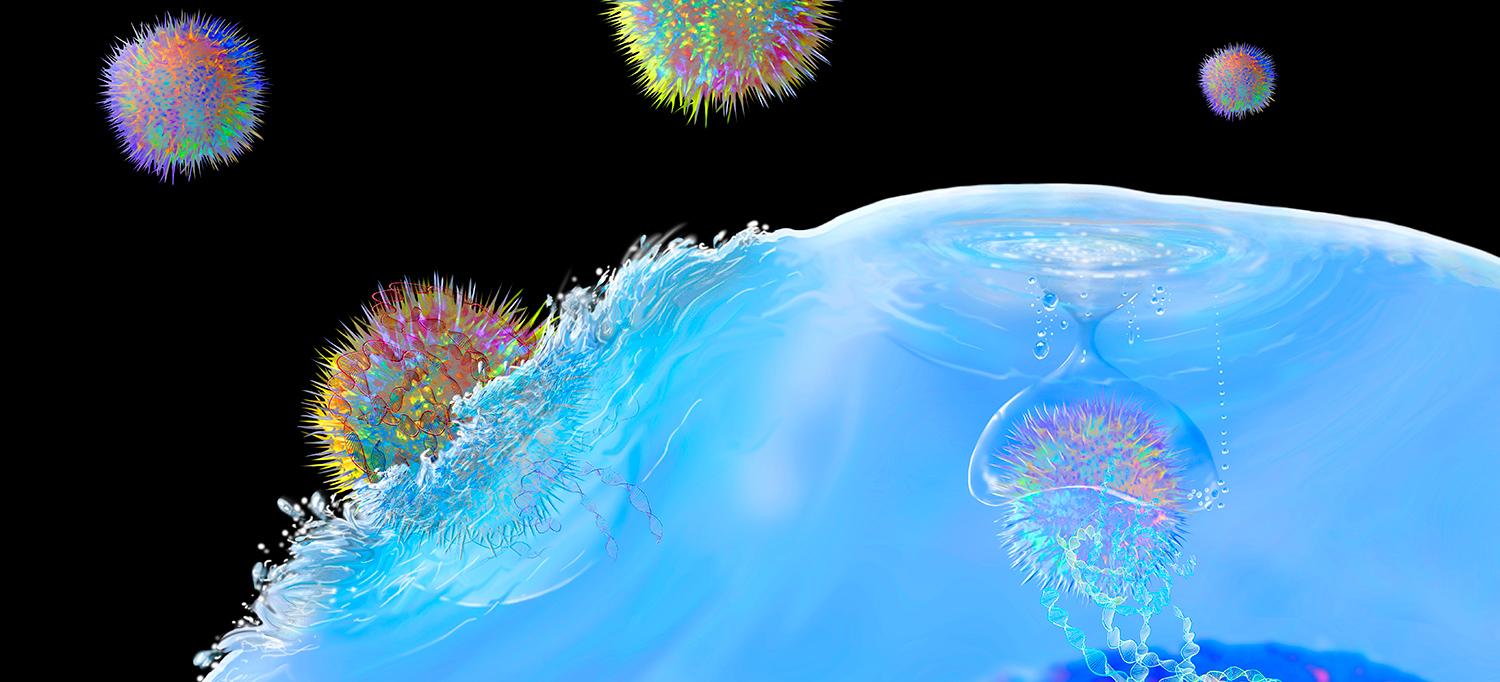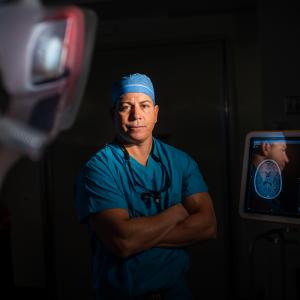
Chimeric antigen receptor (CAR) T-cell therapy is a type of immunotherapy in which a scientist alters a patient’s immune cells so they can attack cancer cells.
Photo: KEITH CHAMBERS/SCIENCE PHOTO LIBRARY/Getty
Immunotherapy treatments that help the body’s immune system fight cancer are rapidly becoming available. While these approaches have shown promising results for many people and many types of cancer, they also carry a risk of immune-related side effects.
Sabina Sandigursky, MD, instructor of medicine, recently joined NYU Langone’s Perlmutter Cancer Center to help unravel the underlying causes of these adverse events, with the hope of predicting which patients are at risk of developing these side effects and ultimately preventing their occurrence.
“Treating immune-related adverse events in these patients requires a multidisciplinary team, and you need good communication between various other specialists and oncologists,” Dr. Sandigursky says. “I’m trying to provide insight into what’s going on in patients' diseases to not impede their treatment in any way.”
Common side effects of immunotherapy include various skin problems, ranging from rashes to the autoimmune disorder vitiligo, thyroid dysfunction, and colitis. People generally recover from these conditions after treatment with high doses of steroids. In rare occasions, they can develop more severe side effects, such as pneumonitis or myocarditis, which can be fatal.
Dr. Sandigursky, a rheumatologist, is interested in the interplay of the immune system in regulating the balance between cancer and autoimmune disease. Her interest in immune-related adverse events in immunotherapy began while she was investigating inhibitory pathway signaling in patients with rheumatoid arthritis. She became curious about what happens to patients with autoimmune disease if they’re treated with checkpoint inhibitors, a type of immunotherapy that blocks proteins that prevent the immune system from attacking the cancer cells.
Most of the preliminary clinical trials evaluating immunotherapy for cancer treatment excluded patients with underlying autoimmune disease because of concerns that their disease would flare. Dr. Sandigursky launched a retrospective analysis of all of the patients at NYU Langone who received immunotherapy for cancer but also had an autoimmune disease.
“What we found is that patients with autoimmune disease have very similar anti-tumor responses to immunotherapy as patients without autoimmune disease,” she says. “However, patients with autoimmune disease see their symptoms flare somewhat more frequently, and they have more immune-related adverse events.”
Symptom flare-up and adverse events are manageable and don’t require stopping therapy, suggesting that these patients should still be offered immunotherapy in the right clinical context.
Dr. Sandigursky has established a clinic for patients at Perlmutter Cancer Center to help stratify the risk of people with pre-existing autoimmune disease. Working with oncologists, she assesses the risks and benefits of immunotherapy to patients. She also treats patients who develop rheumatologic complications such as arthritis from checkpoint inhibitor therapy, the most common type of immunotherapy.
Dr. Sandigursky also conducts basic research. Working in the laboratory of Michelle Krogsgaard, PhD, associate professor in the Department of Pathology and co-director of the Tumor Immunology Program, she is developing a mouse model of immune-related adverse events.
Last year, Dr. Krogsgaard and Iman Osman, MD, professor in the Ronald O. Perelman Department of Dermatology, professor in the Departments of Medicine and Urology, and associate dean for translational research support, found that antibodies from patients who have melanoma and are treated with immune checkpoint inhibitors can determine the type of side effects they will develop. These antibodies can also be used as biomarkers to predict who may develop side effects.
Dr. Sandigursky’s project involves injecting these antibodies in mice to see if those animals develop the same side effects as the human patients and then to develop treatments to help manage the side effects.
“There’s a large push in the field to uncouple some of the toxicity, or side effects, from the treatment response or effect of immunotherapy drugs,” says Dr. Sandigursky. “We're trying to work toward that as well.”

